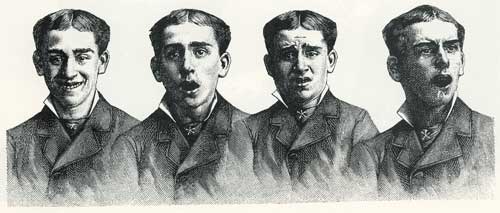Film (2010)
Directed by David Fincher
Written by Aaron Sorkin
Based on The Accidental Billionaires by Mark Mezrich
With Jesse Eisenberg (Mark Zuckerberg), Rooney Mara (Erica Albright), Andrew Garfield (Eduardo Saverin), Armie Hammer (Cameron and Tyler Winkelvoss), Justin Timberlake (Sean Parker)
A coming of age story: funny, slightly sad and bittersweet. It is not Citizen Kane II, as some have suggested – there is not enough life or time span in the protagonist’s story to merit that. Nor is it a Thackeray-style disemboweling of material ambitions, a la Vanity Fair or Barry Lyndon. It is about entrepreneurship and the determination to realize a vision and the typology of the rough-edged characters who often fill that role. And it is also about the difficulties they create, the bridges they burn, the things they overlook, and the people they hurt in the desire to realize their goals.
This is presumably the story – thus far – of Mark Zuckerberg, the founder of Facebook. He has become, as the postscript tells us, the youngest billionaire in the world in the seven years between his inception of the idea and now. Much of the story is about the legal cases brought against him by three fellow students at Harvard who claimed that he stole ideas from them and broke business agreements. The scene of the film switches from a legal deposition, close to the present time, to seven years ago when, at Harvard, Zuckerberg began to realize the Facebook vision.
Was the vision really his, or was it an adaptation including others’ ideas? Did he break implicit agreements by going ahead with the project as he did? And, if Zuckerberg’s talent, gusto and determination were primarily responsible for the success of Facebook, how much did he owe to the people with whom he had rudimentary dealings at the outset? This is what forms the ethical substance of the film, which benefits from Aaron Sorkin’s wit and his capacity to deliver a lot of words in a small space (as fans of The West Wing, which he wrote, so well know). In the end, however, the script provides a glittering survey of those issues rather than a probing analysis. But, the film is well done and engaging, and provides, in its own wry way, a kind of business ethics edutainment.
The tale, and the film character of Zuckerberg, are obviously tailored dramatically, and there is very good reason to see this as drama inspired by history rather than as historically or characterologically accurate biography.

The film is a dark comedy – filled with caricatures, witticisms and one liners – against a background of personal anguish and attendant ambition. It is a latter-day software nerd story. The earlier version of that story occurred thirty years ago with the emergence of Microsoft, Apple, Lotus and the myriad other business wonders of that era. That truly represented the first wave of the revenge of the nerds. So, this new story of sudden and amazing success is not really news in the software world. But it is remarkable news in the world of internet business, which is a somewhat different thing. The ascendancy of Google and Facebook represent the greatest wonders of that newer phenomenon.
Facebook was an especially interesting, phoenix-like phenomenon in the wake of the popping of the great internet bubble early in the last decade. Its story is told, in the film, as a college tale, and focuses much on putative class divisions at Harvard. According to the script, Zuckerberg, a nerdy and abrasive computer wonk, really wanted to get into one of Harvard’s tony (and Tory) social clubs. The great emphasis on that theme seems odd, given the rest of the way in which Zuckerberg’s character is depicted. Mostly, he is portrayed as a determined visionary – someone who worked feverishly to bring his idea to life and to ensure its enduring character as a cool and interesting phenomenon. That idea of avoiding the sorts of design and business choices that would limit the distinctiveness of the site – including advertising – is shown to be central to its success.
Hovering around Zuckerberg are his potential and actual business partners, all of whom are considerably less visionary and brilliant than he, and Zuckerberg emerges, in resisting them, as a valiant protector of his work, and, as well, as the bastard who deceived and double-crossed them.
His prime motivations, suggested by the film, are to impress a particular girl and to show up the snobs at Harvard. But the intention of the script to explain his determination is less compelling than its deftness in depicting it. The former is clearly a dramatic means to enable the latter and does not ring quite as true.
The film is very well written – by Sorkin – and well directed by David Fincher. Jesse Eisenberg is great as Zuckerberg. He was the lead in the Noah Baumbach film The Squid and The Whale (2005) in which he showed his talents as a character who could be vulnerable yet flawed, and who, in the course of that drama, could, through embarrassment and failure, rise to another occasion. The subtext of The Social Network is not that different in that the protagonist stumbles and shames himself numerous times until, through a kind of whittling away of his previous illusions, he begins to emerge as a stronger character.
There is a lot of drama written into this story to make it a Hollywood tale. This makes the characters larger and more interesting than they might otherwise be, and the barbed exchanges more pointed. It is a fun movie, and if one realizes that it is not journalism but a kind of mythologized biography of a notable character, one can enjoy it and not take it overly seriously.
This is a funny and poignant film, but not an epic. The epic size of Facebook‘s success might make us inclined to read this film as such, but that would be a mistake. Its founder’s story is novella-sized at this point, even though his creation, and bank account, are encyclopedic. Equally it would be a mistake to judge this work about a business phenomenon as a monograph in depth psychology; it is much more like a beautifully written, witty article.
The Facebook Effect: The Inside Story of the Company That Is Connecting the World
Contracts: The Essential Business Desk Reference
The Social Contract by Jean-Jacques Rousseau
Individualism Old and New (Great Books in Philosophy) by John Dewey
– BADMan



Leave a Reply